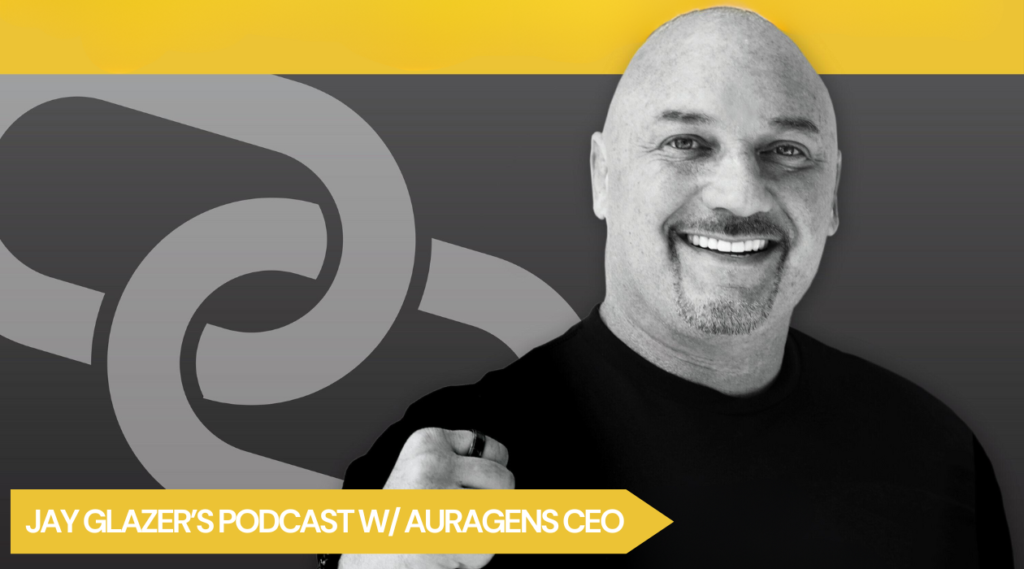
Matt Stone, Trey Parker
It is not often we use cartoons to illustrate the discussion around hUC-MSC stem cell treatments. But one cartoon has resonated and created a lasting conversation piece so we will address as it continues to be mentioned by Auragens’ patients.
Creators of South Park, Trey Parker and Matt Stone, jumped into the stem cell debate way back on December 5, 2001 in an episode called, “Kenny Dies.” Having aired first over 20 years ago it reminds us all how long this treatment has been available and studied and all the evidence of success that exists.
In this episode Parker and Stone portray stem cells with a mix of satire and commentary on the ethical and political debates surrounding the topic. And here we will provide a quick overview of the points made and then the approach that Auragens has taken to address and overcome the bias that still exists to this day.

In the 13th episode of the 5th season, in case you would like to seek it out, the three main themes are:
1️⃣ Cartman’s Self-Interest:
Cartman becomes a fervent advocate for stem cell research, but his motivations are selfish. He wants to use the research to clone a Shakey’s Pizza restaurant, highlighting his typical opportunistic and manipulative behavior.
2️⃣ Ethical and Political Satire:
The show satirizes the political and ethical controversies surrounding stem cell research at the time. Politicians in the episode initially oppose stem cell research, but they quickly change their stance when they see the potential benefits, illustrating the fickleness and opportunism in politics.
3️⃣ Emotional Appeal:
The show also uses the emotional weight of Kenny’s illness and eventual death to underscore the potential life-saving benefits of stem cell research. Stan and the other characters’ genuine emotional responses to Kenny’s condition add a layer of seriousness to the otherwise satirical portrayal.
Overall, this episode of South Park both mocks and critiques the complexities and hypocrisies in the stem cell research debate, blending humor with a poignant storyline.

In real life, and in the industry, we see the same themes – Self-Interest, Ethical and Political Debates, and the Emotional Appeal involved when there is a potentially life changing treatment that is unavailable to the larger population.
So, let us take a look at each in reality:
1. Self-Interest: This issue is one of the barriers that have prevented stem cell treatments from progressing more rapidly to a Standard of Care in all geographies. Many facilities that have been in operations for years recognized the benefits for the individual as well as the financial benefits to the company. In most cases the financial interests of the company outweighed those of the individual. That led to secrecy and the protection of their results and patient outcomes to limit competition. In turn this means that case studies, journal papers, and the evidence needed to garner widespread acceptance never materialized. Over twenty years of tremendous evidence of success remains behind closed doors. Auragens is changing this by being mission driven and using an open-source approach to share all results and patient outcomes, as well as methodology, far and wide.
2. Ethical and Political Debates: This is where much of the misinformation has taken root. First, at Auragens all hUC-MSC stem cells are sourced through a donor program that follows the same blood and tissue donation protocols as in the USA. We work with mothers-to-be as they enter their 2nd trimester to screen and test for safety. And we are in the operating room with them as they give birth to a healthy born baby, and we retrieve the umbilical cord, to maintain custody of the biologics throughout. Rigorously tested thereafter and delivered safely to our patients once our cells have been created. On the political side there is much to unpack, and we will go deeper into this in a future report. However, suffice it to say there are significant financial ramifications from widespread stem cell treatments for the healthcare industry. The elimination of many regularly prescribed pharmaceuticals, surgery avoidance, and increased healthy longevity will impact both Big Pharma and insurance companies’ bottom line. At Auragens we are working to show that while there may be short-term decreased revenue the overall savings in spend per patient will offset those loses. However, from a publicly traded companies’ perspective, the story must be told in quarterly earnings reports or fall on deaf ears.
3. Emotional Appeal: There is nothing that drives our team more than each individual patient. Many seek out Auragens after having tried every other recommendation and to no avail. Whether it is a quality-of-life issue, or life itself, we take each case extremely seriously. Therefore, each patient must apply and consent to a doctor consultation call. Auragens will never overpromise, and we want to provide the best possible advice, guidance, and recommendation to our potential patients. While hUC-MSC stem cell treatments are very effective for many issues it is not magic. Our biologics and science are trained on helping all those we are able. And our medical staff is tasked with either providing the approval for support or the difficult conversation as to why this treatment is not the correct course of action. But the understanding of stem cell treatments must be increased so that each person may individually evaluate for themselves if this is worth seeking out for discussion. And if it is a viable option with potential for positive outcomes then it must be made more readily available to all.

Dr. Christian Diaz, Auragens Medical Director








